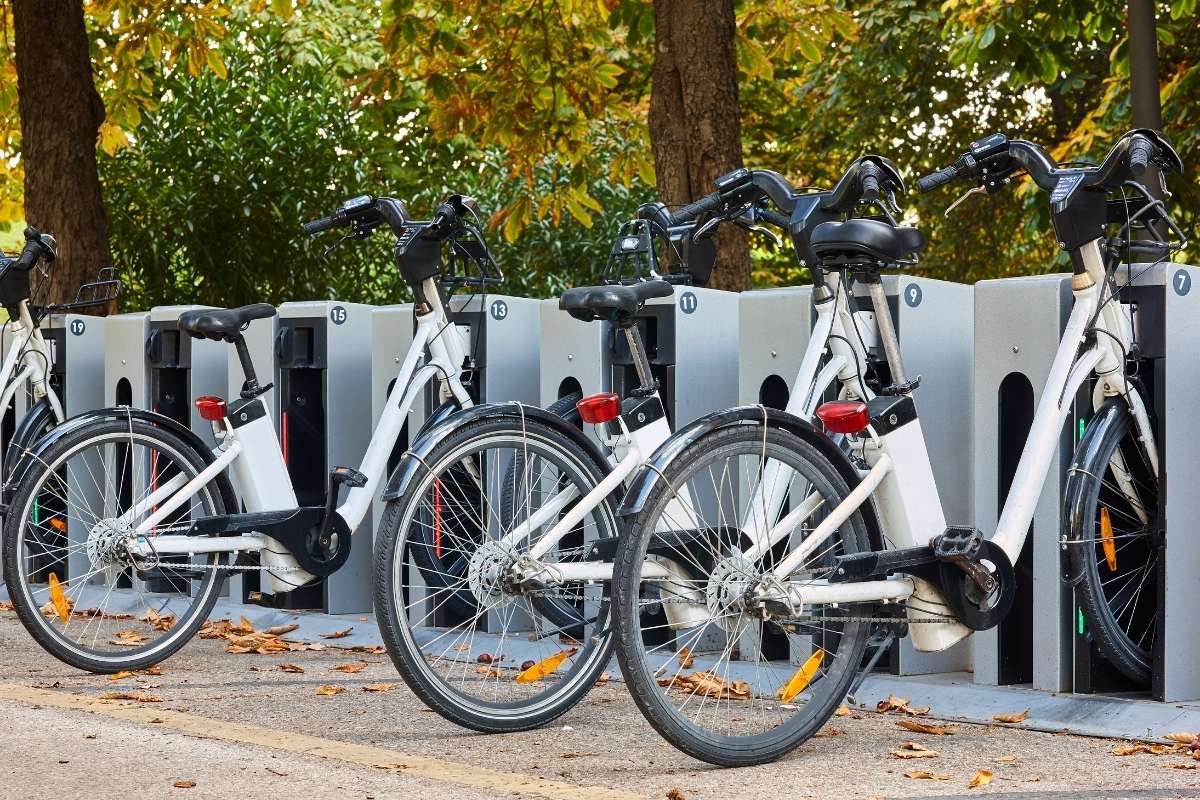You’ve probably seen them zipping silently through traffic, slipping past the morning chaos with an ease that feels almost unfair. No gas, no sweat—just motion. They don’t roar like engines or flash like sports cars, but they still manage to turn heads. Maybe it’s the quiet confidence or the question they leave behind: What exactly are you missing out on?
Give it a second glance, and suddenly they’re everywhere: breezing through bike lanes, tucked into office corners, climbing hills like gravity’s gone soft.
What you’re seeing is more than a passing trend—it’s the quiet rise of electric bikes. Not quite a scooter, not just a regular bicycle, e-bikes combine innovation and ease, turning effort into efficiency.
So, are electric bikes worth it?
Without a doubt—yes. And not just for the reasons you might expect.
10 Reasons Why Electric Bikes are Totally Worth It

Many experienced cyclists often question the benefits of electric bikes. However, these benefits become clear when you consider the many advantages of riding an e-bike. Here, we highlight the most important reasons why the answer to “Are electric bikes worth it?” is a resounding yes.
1. Cost Savings Over Time
Are electric bikes worth it when it comes to your wallet? Absolutely. E-bikes have significantly lower fuel and maintenance costs compared to cars or motorcycles. You won’t need to pay for insurance in most areas, and repairs are typically inexpensive. Charging an e-bike battery is also very economical—it usually costs just a few cents per charge.
2. Eco-Friendly Transportation
E-bikes are environmentally friendly because they produce zero emissions. Unlike gas-powered vehicles, they do not contribute to air pollution. Riding an e-bike is a great way to reduce your carbon footprint and support a cleaner, greener future.
3. Convenient for Daily Commutes
Electric bikes make commuting much more convenient. They help you avoid traffic jams and parking issues, and they’re ideal for “last-mile” travel from a public transit station to your final destination. You can often use bike lanes or alternative routes that cars can’t access, saving time during peak hours.
4. Health Benefits Without Exhaustion
Are electric bikes worth it for your health? E-bikes encourage physical activity but minimize exhaustion thanks to pedal-assist features, making them suitable for people of all fitness levels and ages.
5. Increased Range and Speed
Electric bikes allow you to travel longer distances without getting tired. Depending on the model, they can reach speeds of 20 to 28 mph, which is much faster than pedaling a traditional bicycle. This makes them perfect for suburban or semi-rural areas where commutes may be longer.
6. Fun, Flexible & Stress-Free
Riding an electric bike is a fun and flexible experience. You can choose to pedal like a regular bike or switch to motor assistance whenever you need a break. Whether you’re exploring the city, doing errands, or just enjoying a ride, e-bikes provide a smooth and stress-free journey.
Read More: How to Choose a Mountain Bike for Your Riding Style?
7. Perfect Alternative to Car Ownership
Are electric bikes worth it as a car replacement? For many urban dwellers, yes. They’re more affordable, easier to store, and require less maintenance. Plus, most places don’t require a license or registration.
8. Helps with Hills and Heavy Loads

E-bikes make it easier to climb steep hills and carry heavy items. The electric motor provides extra power to handle inclines, headwinds, or added weight like groceries, backpacks, or even children in bike seats. This makes them ideal for delivery workers, commuters, and parents alike.
9. Improves Accessibility
Electric bikes are more inclusive than traditional bicycles. They enable older adults, individuals with mobility challenges, or those recovering from injuries to ride comfortably and confidently. This increased accessibility allows more people to enjoy the benefits of cycling.
10. Technology is Getting Better
The answer to “Are electric bikes worth it in 2025?” is even stronger as technology improves. Modern e-bikes feature longer-lasting batteries, faster charging, and smart features like GPS and anti-theft systems, making them more practical than ever.
Disadvantages of Electric Bikes
Even though e-bikes have many advantages, they also have some downsides. Like any modern device or way to travel, they have trade-offs that people thinking about buying one should keep in mind.
- Higher Upfront Cost: Compared to traditional bicycles, e-bikes are more expensive to purchase, with decent models typically starting around $1,000 or more.
- Heavier Than Regular Bikes: Due to the motor and battery, electric bikes can be quite heavy, making them harder to carry up stairs or transport without assistance.
- Battery Limitations: Battery range can be a concern, especially on longer rides. Charging takes several hours, and battery replacement can be costly over time.
- Limited by Speed Regulations: E-bike speeds are legally capped (usually 20–28 mph), which may not satisfy thrill-seekers or those expecting motorcycle-level performance.
- Requires Charging Infrastructure: Riders need access to reliable charging points, especially for long-distance travel or daily commuting over 20–40 miles.

- Maintenance Can Be Specialized: Some repairs—especially related to the motor or battery—require specialized knowledge or service centers, which may not be widely available.
- Theft Risk: Because they are more expensive and tech-enabled, electric bikes are a common target for theft, especially if not secured properly.
Comparing E-Bikes to Other Transportation
| Mode of Transport | Avg. Cost Per Year | Speed | Eco Impact | Convenience |
| Car | $8,000+ | High | High Emissions | Medium (traffic, parking) |
| Public Transit | $1,200–$1,800 | Medium | Low Emissions | High (depends on system) |
| Regular Bicycle | $300–$500 | Low | Zero Emissions | Low (physical effort) |
| Electric Bike | $200–$400 (maintenance, charging) | Medium-High | Low Emissions | Very High |
From this comparison, it’s easy to see that electric bikes strike a balance between cost, convenience, and sustainability.
Case Studies: Real-World Impact on Health, Emissions, and Equity
1. Denver E‑Bike Rebate Program (U.S.)
In 2023, a white paper by Ride Report evaluated Denver’s municipal e‑bike rebate initiative. Participants rode an average of 26 miles per week, replacing approximately 3.4 car round-trips. Notably, income-qualified riders—those earning 80% or less of the median income—rode nearly 50% more than others. The program is estimated to have prevented 2,040 metric tons of CO₂ emissions in 2022, making it a standout example of effective urban sustainability efforts.
2. Health & Well-Being in Regional Australia
A 2022 study published in PubMed followed 20 inactive, overweight adults who were given electric bikes for 12 weeks. The participants reported significant improvements in mental well-being, increased physical activity, and a noticeable boost in overall happiness. The study suggests e-bikes are not only a mobility solution but also a catalyst for healthier lifestyles.
3. Norway & Sweden: Active Commuting Pilot

A cross-national study conducted with 21 participants from Norway and Sweden examined the shift to e‑bike commuting. The findings revealed that participants increased their daily physical activity, experienced enhanced mental well-being, and appreciated the flexibility and convenience offered by pedal-assist bikes. This pilot underscores the broader public health benefits of integrating e-bikes into daily routines.
Conclusion
Are electric bikes worth it for you depends on your needs, lifestyle, and goals. If you value freedom from traffic, lower commuting costs, improved fitness, and a smaller carbon footprint, an e-bike might be the best investment you make this year.
While they’re not a one-size-fits-all solution, electric bikes offer a versatile and sustainable alternative that continues to gain popularity. Whether you’re a daily commuter, casual rider, or someone looking to get back into cycling, exploring the world of e-bikes could open up a new chapter of mobility and well-being.


















